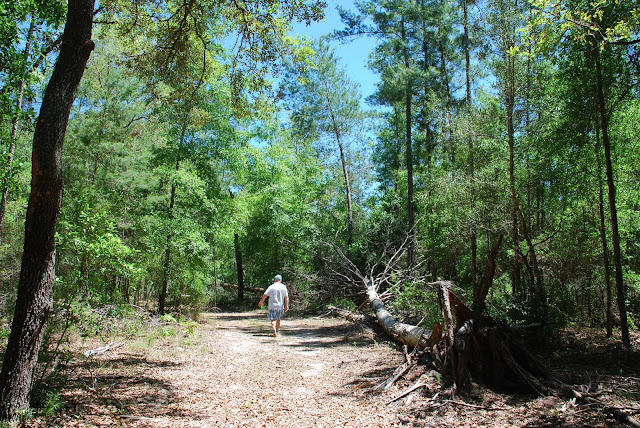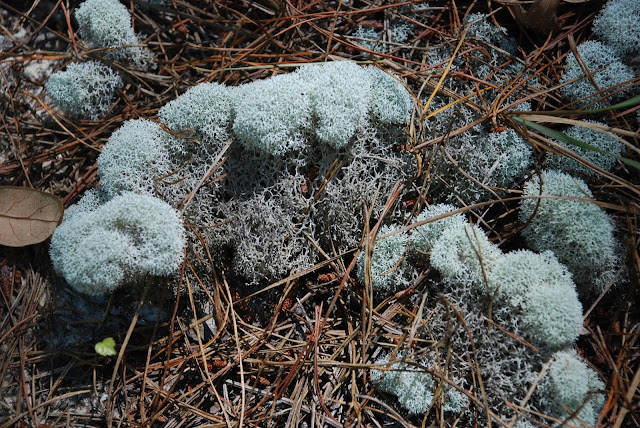Previous | Main |  Next Next |
St. Johns River stop (Pico Rd) overlooking Horshoepoint Conservation Area
2.4 mi loop Dunn's Creek Blue Pond
Dunn's Creek State Park and Etoniah Creek State Forest are the only public places where the endangered Etonia rosemary (Conradina etonia) can be found.
Lichens (watch intro video and lichen biology video) cover 7% of the earth's surface and thrive in unpolluted air. Having no roots, they absorb pollutants and scientists have used them to monitor the air quality since 1859.
Some lichens live for ten thousand years. In fact the oldest living organism on Earth is thought to be at the moment a map lichen (Rhizocarpus geographicum) in the Arctic (8,600 years - the age can be easily measured as it grows at constant rates). Given their long life span this species of lichen has been used to determine the age of exposed rock (lichenometry) to estimate the time of retreat of a glacier. This is one of three species of lichens that were exposed to outer space for 10 days onboard the Biopan facility of the European Space Agency and survived.
Interestingly enough is that lichenometry is more accurate than carbon dating for surfaces less that 500 years old.
Here is an interesting video from National Geographic showing that some lichens have two fungi and one algae in symbiosis. The research was started from two lichens seemingly identical but known by Native Americans to be different, one of them toxic and the other edible.
Powder-puff lichen (Cladina evansii)
From the same genus is British Soldier lichen
Little Creek and Bird Calls
From the same genus is British Soldier lichen
Little Creek and Bird Calls
Short stop at Murphy Creek Conservation Area
Hermits Cove - Satsuma
Previous | Main |  Next Next |
















































